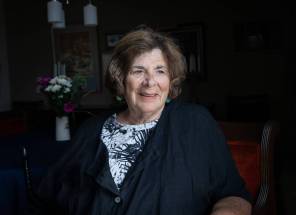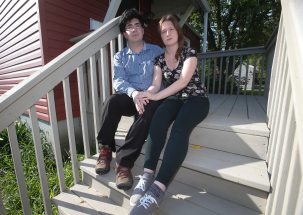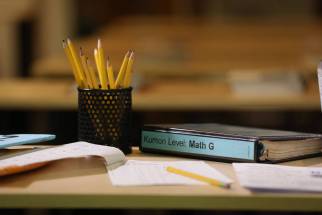‘All over the map’ Study tracks Winnipeg teachers’ well-being during COVID-19 pandemic
Read this article for free:
or
Already have an account? Log in here »
To continue reading, please subscribe:
Monthly Digital Subscription
$0 for the first 4 weeks*
- Enjoy unlimited reading on winnipegfreepress.com
- Read the E-Edition, our digital replica newspaper
- Access News Break, our award-winning app
- Play interactive puzzles
*No charge for 4 weeks then price increases to the regular rate of $19.00 plus GST every four weeks. Offer available to new and qualified returning subscribers only. Cancel any time.
Monthly Digital Subscription
$4.75/week*
- Enjoy unlimited reading on winnipegfreepress.com
- Read the E-Edition, our digital replica newspaper
- Access News Break, our award-winning app
- Play interactive puzzles
*Billed as $19 plus GST every four weeks. Cancel any time.
To continue reading, please subscribe:
Add Free Press access to your Brandon Sun subscription for only an additional
$1 for the first 4 weeks*
*Your next subscription payment will increase by $1.00 and you will be charged $16.99 plus GST for four weeks. After four weeks, your payment will increase to $23.99 plus GST every four weeks.
Read unlimited articles for free today:
or
Already have an account? Log in here »
Hey there, time traveller!
This article was published 15/08/2022 (1211 days ago), so information in it may no longer be current.
From feelings of accomplishment to complete desensitization, Winnipeg teachers’ state of well-being is “all over the map” after two and a half years of instructing during the COVID-19 pandemic.
University of Winnipeg’s Laura Sokal and Lesley Trudel began surveying teachers about their stress levels and coping mechanisms in the spring of 2020.
Related Items
The researcher duo initially launched a national survey to gauge resiliency and later, recruited 20 public school teachers to participate in a local case study involving bi-weekly interviews throughout 2020-21.
They followed up with their subjects, all of whom work in the same Winnipeg-area division, at the end of the most recent school year and conducted interviews with 18 teachers who agreed to provide an update.
“I wanted to determine how teachers were affected by this prolonged stress from the pandemic… I wanted to know: How did teachers respond through this? Did they feel like they grew? Did they feel like they learned something?” said Trudel, a former classroom teacher and administrator who is interested in change management in the K-12 system.
“I wanted to determine how teachers were affected by this prolonged stress from the pandemic… I wanted to know: How did teachers respond through this?” – Lesley Trudel
Trudel said she was shocked by the variety of responses they received in the latest dispatch in their case study.
“It was all over the map,” she said. “You’ve got everything from ‘High 5! I learned something! We made it through!’ to… ‘I’m not enthusiastic. I have low energy.’”
A bulk of respondents indicated they felt somewhat inefficacious — not unlike the findings in their national survey in the fall of 2020. Forty-six per cent of Manitoba teachers reported high levels of exhaustion and withdrawal, as well as significant decreases in classroom effectiveness.
The latest data, collected in late May and early June, shows some teachers feel cynical, desensitized and are unsure about whether they want to continue their career in education.
RUTH BONNEVILLE / WINNIPEG FREE PRESS FILES University of Winnipeg’s Laura Sokal and Lesley Trudel initially launched a national survey to gauge resiliency and later, recruited 20 public school teachers to participate in a local case study involving bi-weekly interviews throughout 2020-21.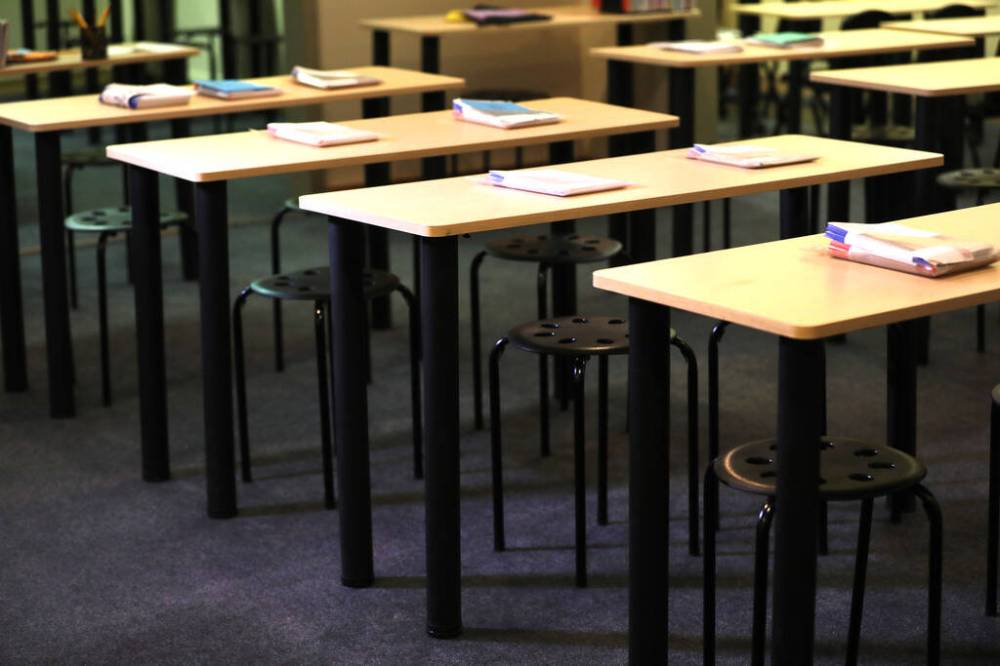
A single teacher involved in the case study went on stress leave during the first full pandemic school year. At least three educators took stress leaves last year.
“They have lived through a hardship — two years of it, and they’re on the frontline, and this is their adverse life experience. I think they’ve just become desensitized, hardened and very matter of fact about things,” Trudel said, adding respondents expressed frustration that the provincial government had become a “non-entity” and “absent.”
Other educators expressed compassion, an understanding of their limits, and an appreciation for the lessons they have learned about technology since 2020.
Of the 18 teachers, however, only four fit into what Sokal and Trudel call the green burnout zone, which is reserved for individuals who feel confident and effective at work.
An even smaller group achieved “post-traumatic growth,” a term that refers to finding greater success after a traumatic experience, according to Sokal.
The education professor said two teachers took time to reflect on their situation and reframe it to make their life better in spite of COVID-19, having both started new teaching jobs since 2020.
“When you have the internal capacity and you have supports from those around you and when the (job) demands are reasonable, you can come out of this better,” Sokal said, adding the “magic ingredients” differ for everyone.
“When you have the internal capacity and you have supports from those around you and when the (job) demands are reasonable, you can come out of this better.” – Laura Sokal
The duo’s research found supportive administrators and face-to-face teacher collegiality have been key resources for educators to ground themselves during the pandemic. Successful teacher coping mechanisms include personal counselling, exercise and detaching from technology for extended periods, they said.
Stress has remained a constant in teachers’ lives, but the latest data shows a slight shift in concerns.
Teachers were worried about their personal safety, home-life balance, implementing public health protocols in schools, student absenteeism and now-defunct education reform plans throughout 2020-21.
More recently, they shared frustrations about continuing to feel unsafe despite being vaccinated, extra funding drying up, limited student motivation and the fallout of a surge in screen time.
“What I’m hearing from teachers is they are concerned about academic learning loss, but they feel that that’s their job and they can handle that. They are going to meet students where they’re at — but what they aren’t prepared for is the loss of emotional maturity,” Trudel added.
The researchers agree that there is no one-size-fits-all solution to address ongoing teacher burnout. At the same time, they said one thing is certain: ongoing government funding is required so divisions can support their staff with differentiated responses to address all needs.
maggie.macintosh@freepress.mb.ca
Twitter: @macintoshmaggie
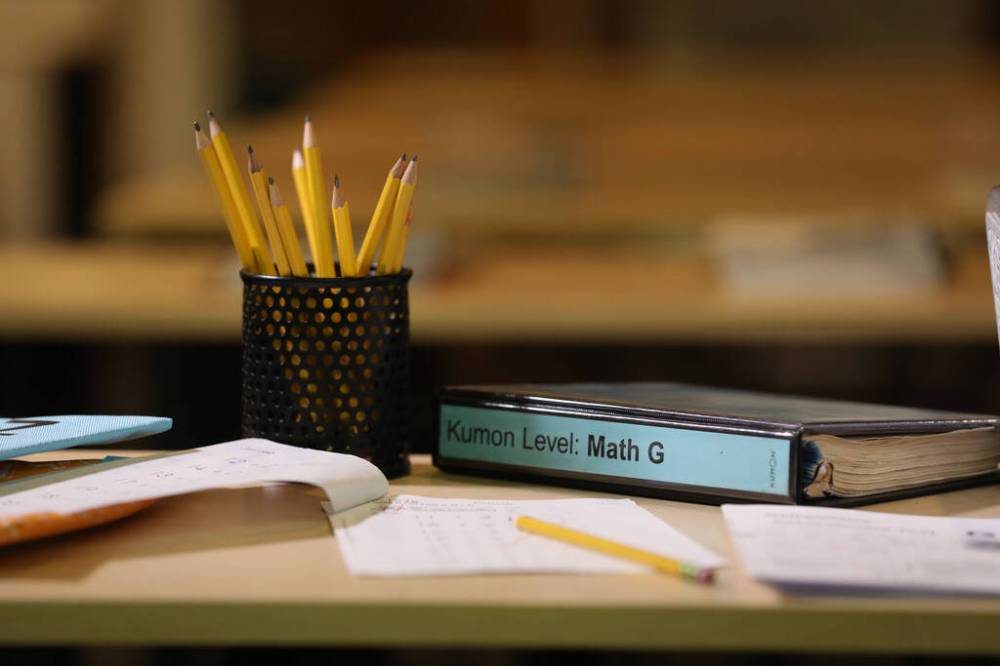
RUTH BONNEVILLE / WINNIPEG FREE PRESS FILES
The latest data, collected in late May and early June, shows some teachers feel cynical, desensitized and are unsure about whether they want to continue their career in education.

Maggie Macintosh reports on education for the Winnipeg Free Press. Funding for the Free Press education reporter comes from the Government of Canada through the Local Journalism Initiative.
Our newsroom depends on a growing audience of readers to power our journalism. If you are not a paid reader, please consider becoming a subscriber.
Our newsroom depends on its audience of readers to power our journalism. Thank you for your support.



